Down to the grassroots
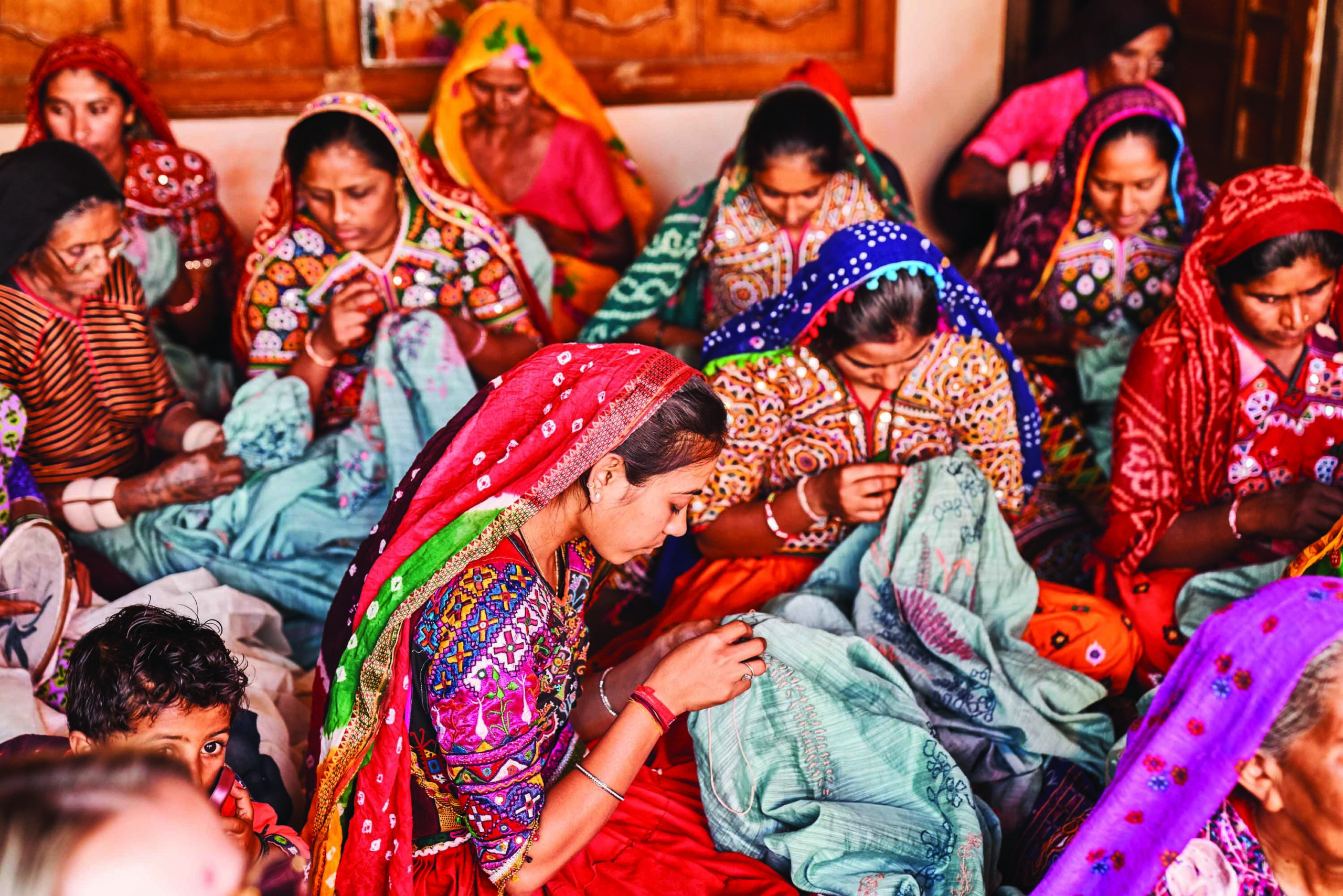
In our fifth column in the series of reimagining a conscious future, Yash Dongre – Business Head – House of Anita Dongre Limited speaks to BeejLiving about balancing social impact with commerce.
The fashion house is nearing the magical figure of a nearly 1,000 stores across the globe under four brands AND (Contemporary everyday and occasion wear for women), Global Desi (India-inspired young and colourful boho chic fashion for women), Anita Dongre Bridal Couture (luxury bespoke bridal, couture and ready-to-wear) and Grassroot (sustainable artisanal luxury prêt).
“Sustainable fashion is still nascent in India. But covid has given a shot in the arm to the segment. People are rethinking their consumption patterns and what impact it has on the environment.
Millennials and Gen Z are making faster strides towards adopting sustainable measures in their life. They are looking within and making small changes.
The process will take time, but I am quite optimistic. A brand like Grassroot has a bright future in the country. It is a start. I think now more fashion brands will have the courage to start labels with a sustainable ethos.
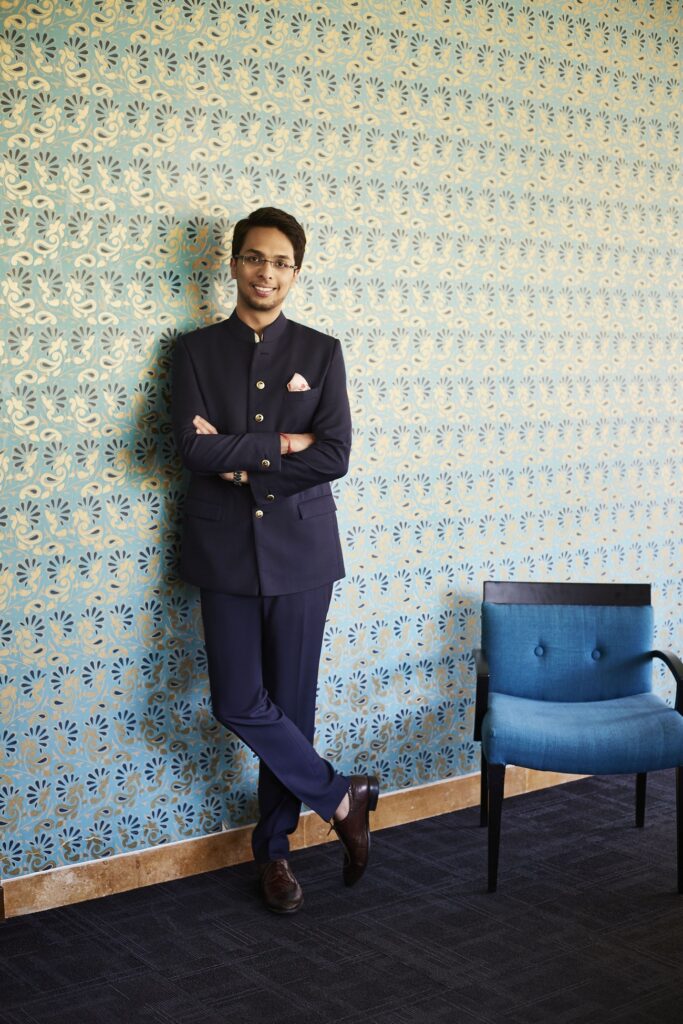
Yash Dongre – Business Head – House of Anita Dongre Limited
The roots of sustainability
Starting a sustainable fashion label is easier said than done though. India doesn’t yet have the infrastructure required to make it seamless to work with artistic communities.
It requires a lot of hard work and supervision to get great quality work at a large scale.
In addition, the high costs are a deterrent. We work extensively with the artisans of SEWA for bandhini, block printing, etc. It is time consuming and costs more than for instance, getting this craftsmanship in a factory in Mumbai. Working with village clusters impacts your margins. But as a company you need to decide if you are willing to take a cut in your profits to support a community.
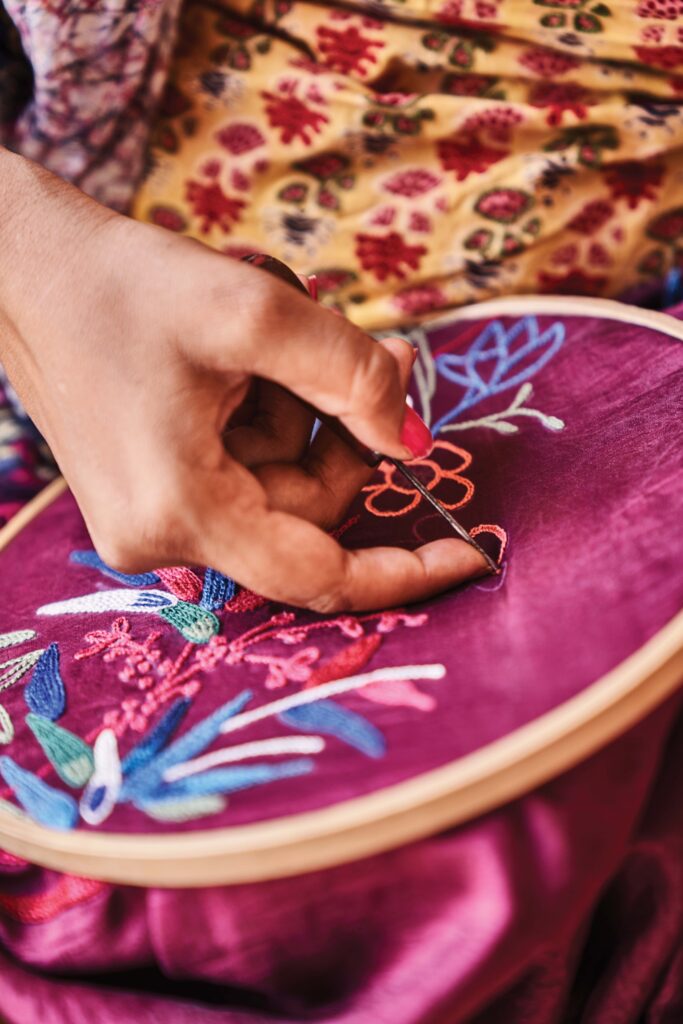
Building developmental partnerships
Under the Anita Dongre Foundation, we’ve developed five community training and production centres in rural Maharashtra in Charoti, Jawhar, Dhanevari, Modgaon and Kawada, where we train unskilled tribal women in basic techniques such as cutting, stitching and packing. All the brands under the Anita Dongre umbrella work with these skill centers.
Because of the covid impact, our production has fallen, so we are actually pitching to other companies to partnering with us and working with the artisans. Though these started as Anita Dongre skill centers, now it has developed into a larger initiative.
It has been difficult though to bring in partners, as it is cheaper to get done work in factories, thus not many are pitching in. So, we have started a dialogue with the Clothing Manufacturers Association of India and are optimistic of bringing large scale manufacturers to come on board who will give large volumes of work. It is early days. By next summer, we should definitely see a traction in this space.
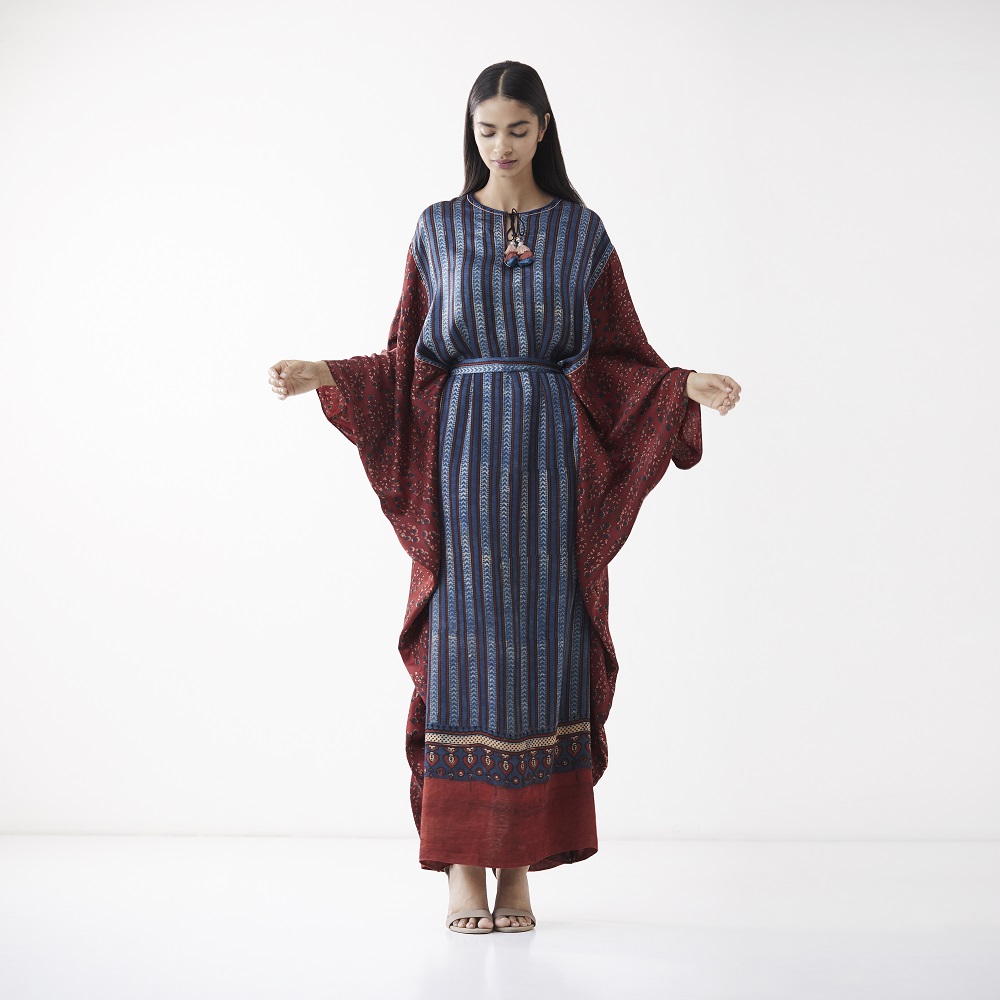
Changing the narrative
There are so many changes a brand can make in fashion’s narrative that goes beyond just handcrafting. For instance, taking a view of the entire fashion life cycle, right from the processes at your backend and materials to the factories you are working with and designing products with a circular perspective in mind. There are several areas which you can look to impact. We too, as a brand have earmarked several pledges to be fulfilled over the next few years, such as reducing water consumption in the production process and working with alternative materials.
One of our efforts as a vegan brand is to look for alternatives to silk, as the whole face of our couture line is silk. Also, our winter line is not as strong as that of other brands as we do not use wool. We are looking for ethically sourced wool and alternatives to wool.
To change the narrative in the fashion industry, we must understand that the intent is there, what’s holding brands back is feasibility and costs.
There are innovations which are bringing a change. For instance, look at new-age fabrics. We are seeing bigger players, such as Reliance with RlElan and Aditya Birla Group with Birla Cellulose innovating with eco fabrics, scaling up production and bringing down costs. Backed by marketing budgets, they are building awareness and acceptability, and people are adopting these earth-friendly fabrics.
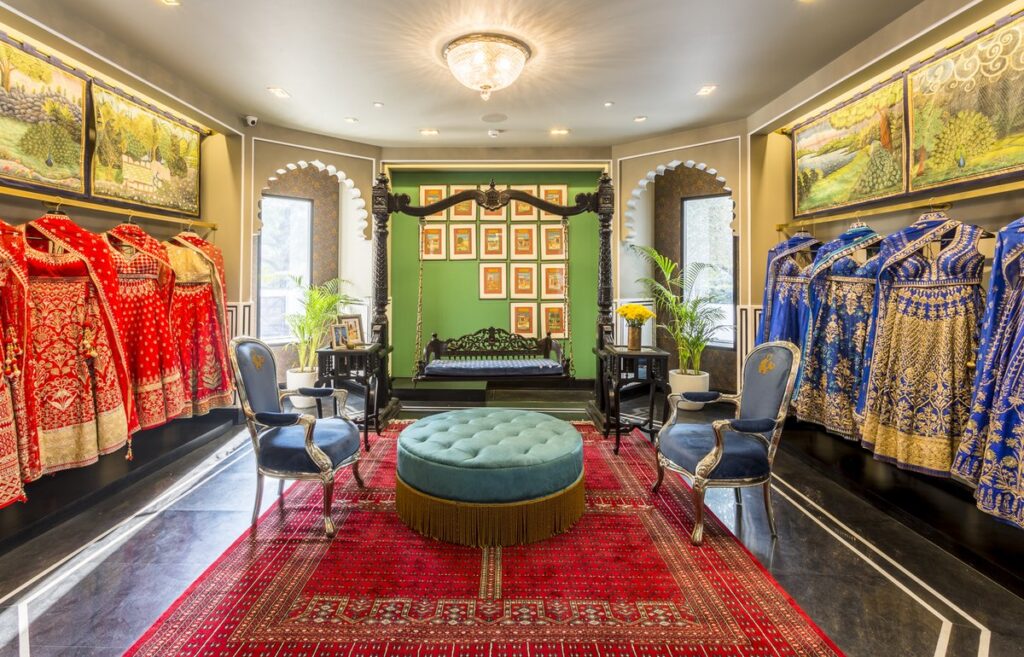
Going vocal for local
There’s a lot of buzz around this topic and the hashtag has become the subject of cool. But it’s a tricky space. If you look at the on-ground action and intention, I honestly don’t know how much of that is actually culminating in actual work.
Bolder steps need to be taken to work at the local level and engage with communities.
If you go to a small artisanal cluster, say in Maharashtra or Gujarat, you will realise they are not growing at a level that can sustain them, because there is not that much work.
There needs to be a balance between social impact and commerce. Brands need to be aware with an ethos of being handmade by artisans, it is not possible to scale up tremendously. You need to start small, at the local level.
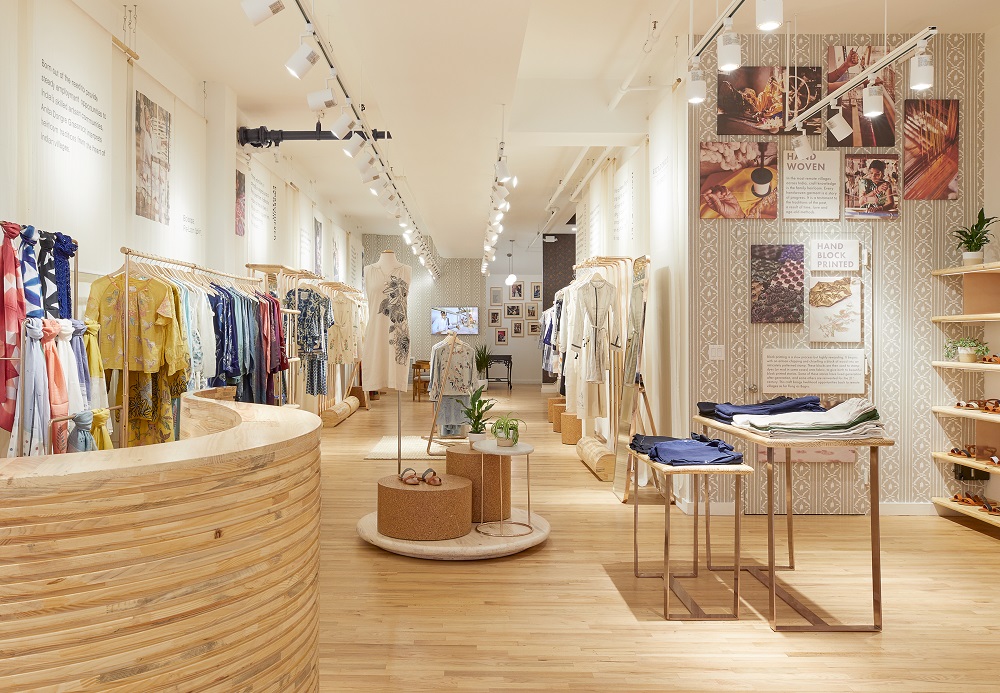
If every single designer and fashion manufacturing center went to these centers and gave them work, it would make an impact. Economies of scale will make working with these clusters competitive.
It is a collective effort. Once there are more players in the market, it becomes more viable to scale up infrastructure at the cluster and village level.

The artisans are extremely hardworking, ambitious, and really want to take on more challenging work. They just need to be given an opportunity.
I encourage the industry to be bold and look at the larger picture to make a visible impact.”





